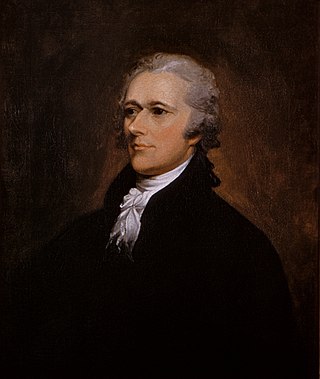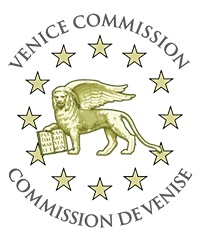
Judicial independence is the concept that the judiciary should be independent from the other branches of government. That is, courts should not be subject to improper influence from the other branches of government or from private or partisan interests. Judicial independence is important for the idea of separation of powers.

The Courts of Denmark is the ordinary court system of the Kingdom of Denmark. The Courts of Denmark as an organizational entity was created with the Police and Judiciary Reform Act taking effect 1 January 2007 which also significantly reformed the court system e.g. by removing original jurisdiction from the High Courts and by introducing a new jury system.

The primary and fundamental statement of laws in the Russian Federation is the Constitution of the Russian Federation. Statutes, like the Russian Civil Code and the Russian Criminal Code, are the predominant legal source of Russian laws.
The Constitution of Finland is the supreme source of national law of Finland. It defines the basis, structures and organisation of government, the relationship between the different constitutional organs, and lays out the fundamental rights of Finnish citizens, and individuals in general. The original Constitution Act was enacted in 1919, soon after Finland declared its independence in 1917. The current draft of the Constitution came into force on 1 March 2000.
The origin of the current law of the People's Republic of China can be traced back to the period of the early 1930s, during the establishment of the Chinese Soviet Republic. In 1931 the first supreme court was established. Though the contemporary legal system and laws have no direct links to traditional Chinese law, their impact and influence of historical norms still exist.

Federalist No. 78 is an essay by Alexander Hamilton, the seventy-eighth of The Federalist Papers. Like all of The Federalist papers, it was published under the pseudonym Publius.

The Venice Commission, officially European Commission for Democracy through Law, is an advisory body of the Council of Europe, composed of independent experts in the field of constitutional law. It was created in 1990 after the fall of the Berlin Wall, at a time of urgent need for constitutional assistance in Central and Eastern Europe.
Constitutional theory is an area of constitutional law that focuses on the underpinnings of constitutional government. It overlaps with legal theory, constitutionalism, philosophy of law and democratic theory. It is not limited by country or jurisdiction.

The Constitutional Court of the Russian Federation is a high court within the judiciary of Russia which is empowered to rule on whether certain laws or presidential decrees are in fact contrary to the Constitution of Russia. Its objective is only to protect the Constitution and deal with a few kinds of disputes where it has original jurisdiction, whereas the highest court of appeal is the Supreme Court of Russia.
The legal system of Azerbaijan is based on civil law. As the country was a republic of the Soviet Union until 1991, its legal history has also been influenced heavily by socialist law. However, after the collapse of the Soviet Union, Azerbaijan became independent by enactment of the constitutional act of national independence on 18 October 1991. Azerbaijan adopted a Constitution in 1995 which is the foundation of the legislative system of the modern country.

Judicial review is a process under which a government's executive, legislative, or administrative actions are subject to review by the judiciary. In a judicial review, a court may invalidate laws, acts, or governmental actions that are incompatible with a higher authority. For example, an executive decision may be invalidated for being unlawful, or a statute may be invalidated for violating the terms of a constitution. Judicial review is one of the checks and balances in the separation of powers—the power of the judiciary to supervise the legislative and executive branches when the latter exceed their authority. The doctrine varies between jurisdictions, so the procedure and scope of judicial review may differ between and within countries.

The constitution of the United Kingdom comprises the written and unwritten arrangements that establish the United Kingdom of Great Britain and Northern Ireland as a political body. Unlike in most countries, no official attempt has been made to codify such arrangements into a single document, thus it is known as an uncodified constitution. This enables the constitution to be easily changed as no provisions are formally entrenched.
Judicial reform is the complete or partial political reform of a country's judiciary. Judicial reform can be connected to a law reform, constitutional amendment, prison reform, police reform or part of wider reform of the country's political system.
Constitutional economics is a research program in economics and constitutionalism that has been described as explaining the choice "of alternative sets of legal-institutional-constitutional rules that constrain the choices and activities of economic and political agents". This extends beyond the definition of "the economic analysis of constitutional law" and is distinct from explaining the choices of economic and political agents within those rules, a subject of orthodox economics. Instead, constitutional economics takes into account the impacts of political economic decisions as opposed to limiting its analysis to economic relationships as functions of the dynamics of distribution of marketable goods and services.

Judicial independence is protected by Singapore's Constitution, statutes such as the State Courts Act and Supreme Court of Judicature Act, and the common law. Independence of the judiciary is the principle that the judiciary should be separated from legislative and executive power, and shielded from inappropriate pressure from these branches of government, and from private or partisan interests. It is crucial as it serves as a foundation for the rule of law and democracy.

The judiciary of Scotland are the judicial office holders who sit in the courts of Scotland and make decisions in both civil and criminal cases. Judges make sure that cases and verdicts are within the parameters set by Scots law, and they must hand down appropriate judgments and sentences. Judicial independence is guaranteed in law, with a legal duty on Scottish Ministers, the Lord Advocate and the Members of the Scottish Parliament to uphold judicial independence, and barring them from influencing the judges through any form of special access.

The Ministry of Justice of the Republic of Uzbekistan is the central government body responsible for ensuring the consistent implementation of a unified state policy in the areas of lawmaking and law enforcement in Uzbekistan.

The law of Cyprus is a legal system which applies within the Republic of Cyprus. Although Cypriot law is extensively codified, it is still heavily based on English common law in the sense that the fundamental principle of precedent applies.

The National Council of the Judiciary is the national council of the judiciary of Poland. It is a public body in Poland responsible for nominating judges and reviewing ethical complaints against sitting jurists.

The judiciary of South Korea is the judicial branch (사법부) of the South Korean central government, established by Chapter 5 and 6 of the Constitution of South Korea.













